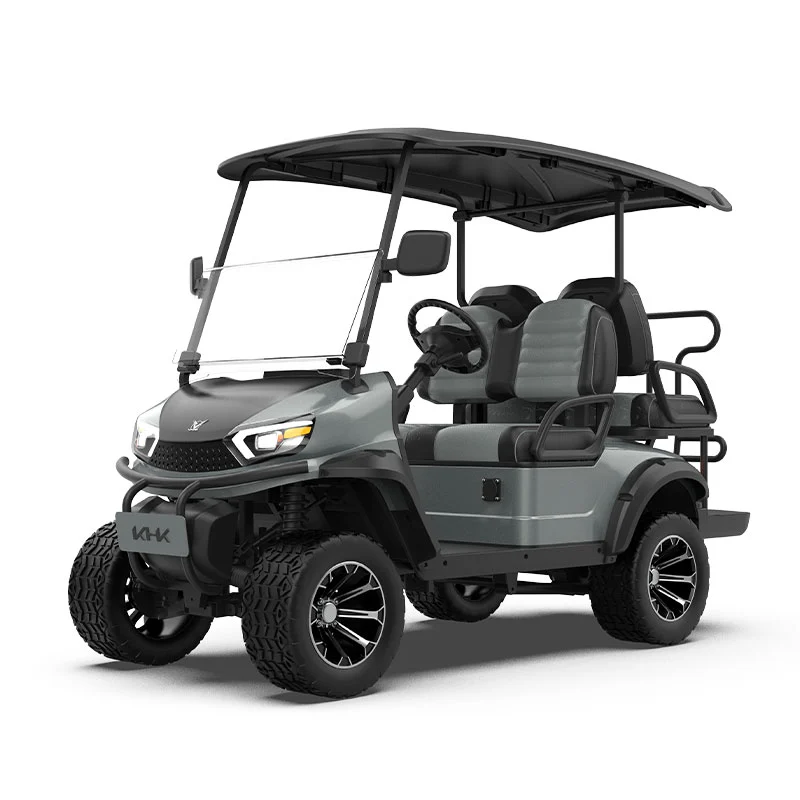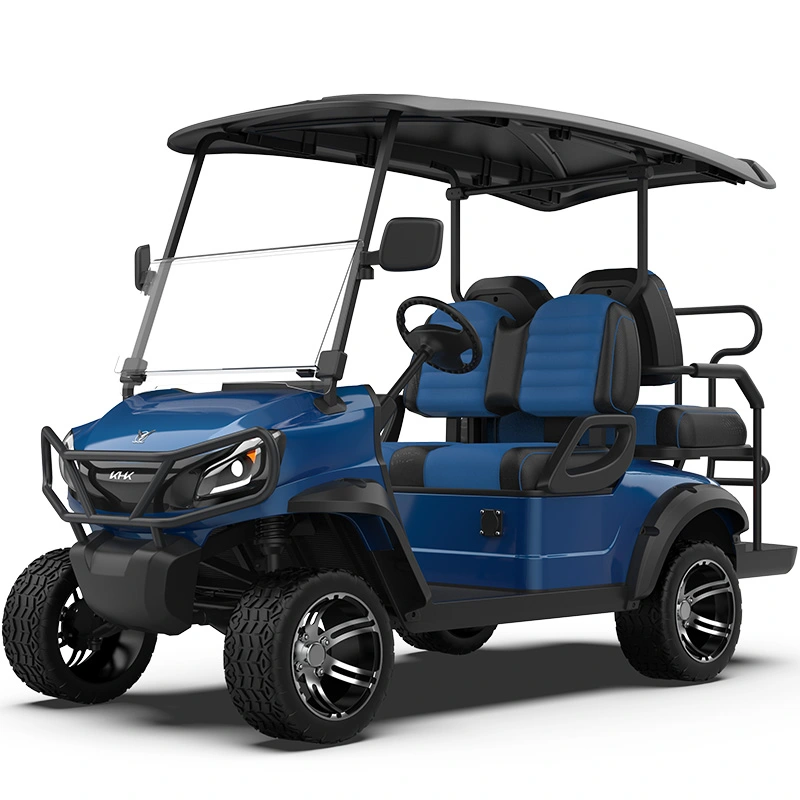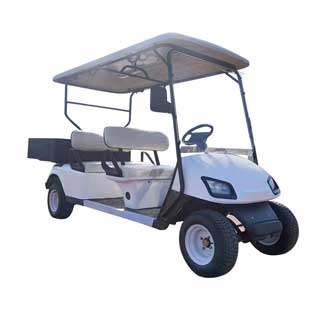Owning a six-seater electric golf cart can be a fantastic way to transport passengers or gear comfortably and efficiently. However, there may come a time when you notice that your trusty cart is running slower than usual, which can be quite frustrating. The good news is that this issue is often fixable. In this article, we'll explore some common reasons why your six-seater electric golf cart might be running slowly and how to troubleshoot and resolve these issues.
Battery Health and Voltage of Six-Seater Electric Golf Cart
One of the primary factors affecting the speed and performance of your six-seater electric golf cart is the health and voltage of its batteries. Electric golf carts rely on batteries to provide the necessary power, and if the batteries are in poor condition or have a low voltage, it can lead to reduced speed and performance.
To address this issue, start by checking the state of your batteries. Look for signs of corrosion on the terminals, and ensure they are clean and securely connected. Measure the voltage of each battery using a voltmeter to ensure they are all operating at the recommended voltage level. If you find that one or more batteries are weak or have low voltage, it may be time to replace them.
Tire Pressure and Tread of Six-Seater Electric Golf Cart
The condition of your six-seater electric golf cart's tires can significantly impact its speed and handling. Low tire pressure or worn-out tire tread can cause your cart to run slowly and less efficiently. To troubleshoot this issue, follow these steps:
Check the tire pressure: Ensure that all tires are inflated to the recommended pressure levels as specified in your cart's manual. Low tire pressure can lead to increased rolling resistance and reduced speed.
Inspect the tire tread: Examine the condition of your tires' tread. If it's worn down, it can hinder traction and performance. Replace any tires with inadequate tread to improve your cart's speed and grip.
Verify wheel alignment: Misaligned wheels can cause your cart to veer and reduce its speed. Ensure that the wheels are correctly aligned to maintain optimal performance.
Motor and Controller Health of Six-Seater Electric Golf Cart
The electric motor and controller are essential components of your six-seater electric golf cart's propulsion system. A malfunctioning motor or controller can lead to slower speeds and reduced performance. Here's how to troubleshoot these components:
Check for loose or damaged connections: Inspect all the electrical connections between the motor and controller. Loose or damaged wires can disrupt the flow of power, leading to slower speeds. Ensure that all connections are secure and free of damage.
Motor brushes: Electric motors in golf carts have carbon brushes that can wear out over time. If your cart is slowing down, this could be due to worn motor brushes. Consider replacing these brushes to restore proper performance.
Controller diagnostics: Consult your cart's manual for instructions on how to run diagnostics on the controller. This can help identify any issues or errors that may be causing the slowdown. If necessary, seek professional assistance to address controller problems.
Weight and Passenger Load of Six-Seater Electric Golf Cart
The number of passengers and the weight of your cargo can impact the speed and performance of your six-seater electric golf cart. These vehicles have weight limits, and exceeding them can lead to slower operation. To address this issue, consider the following:
Check the weight capacity: Review your cart's manual to determine its weight capacity. Ensure that you are not exceeding this limit with passengers and cargo.
Reduce the load: If you consistently carry a heavy load, consider reducing the weight when possible. Distribute the load evenly to avoid putting excessive stress on the cart's components.
By following these troubleshooting steps, you can get your six-seater electric golf cart back up to its optimal speed and performance, allowing you to enjoy your rides without any slowdowns or inconveniences.




